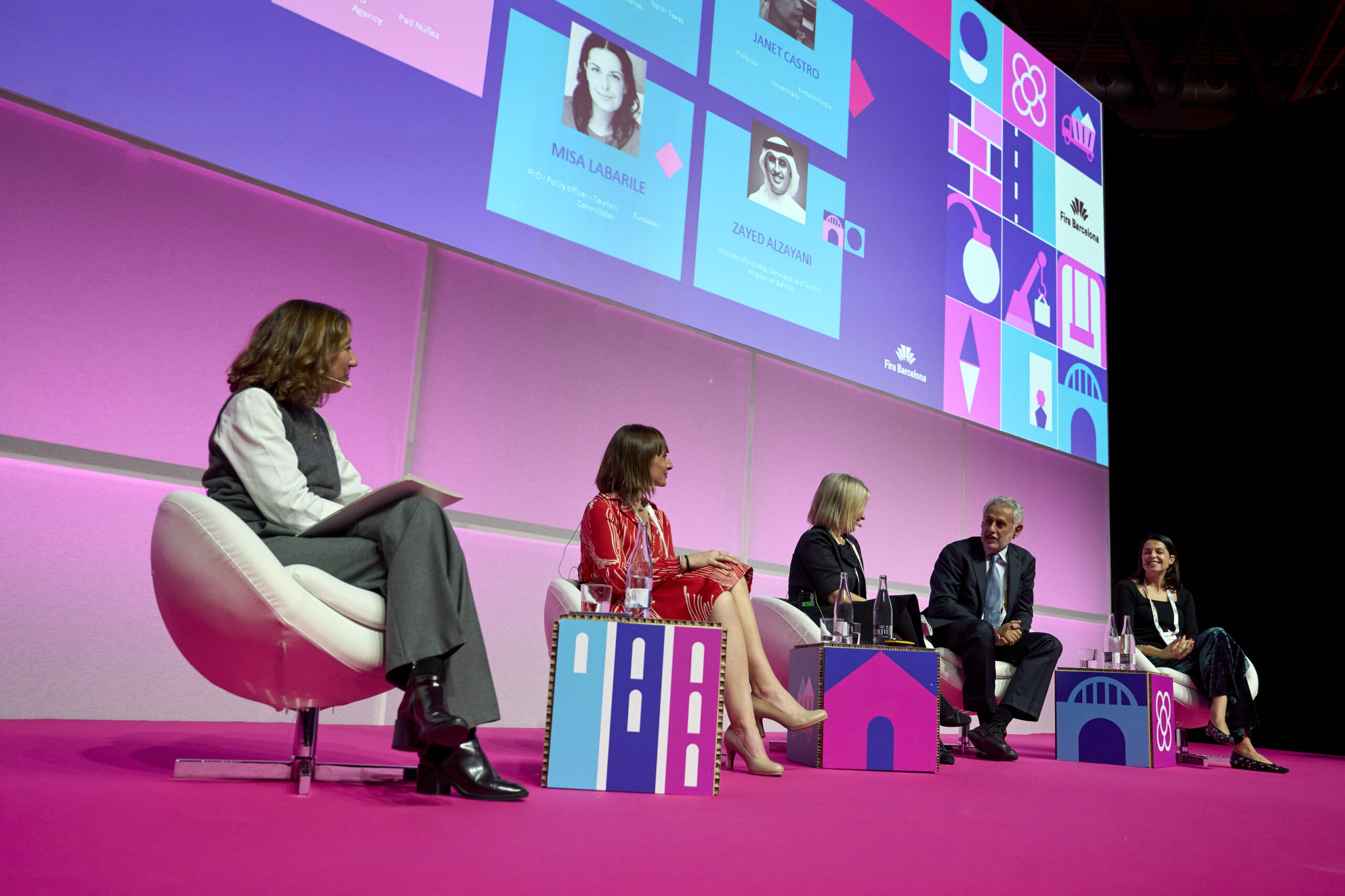SPEAK AT TBWC25
CALL FOR SPEAKERS
Call for Speakers 2025
Next edition’s call is now open! Send in your application before 21 April for the chance to be part of the international event for city changers.
The Tomorrow.Building World Congress is the leading event for the built environment, where the most transformative ideas for sustainable construction and urban development take center stage.
Since its inception, visionary leaders, experts, and innovators have gathered in Barcelona to shape the future of buildings and drive a global conversation on smarter, greener, and more efficient infrastructure.
Now, it’s your turn to inspire change: The 2025 Call for Speakers is officially open.
THIS CALL IS CURRENTLY CLOSED. THANKS TO ALL SUBMISSIONS RECEIVED!
SEE YOU ON 4 - 6 NOVEMBER 2025
FOCUS ON KEY TOPICS

Design Tech
Advanced software like BIM (Building Information Modeling), virtual reality and augmented reality as well as AI simulations allow designers to experiment with complex forms and spaces to develop sustainable buildings and infrastructures for cities. In what ways are these digital tools enabling better-informed decisions and more innovative, resilient urban environments?
Digital Building Innovation
Digital tools allow to improve construction accuracy and reduce costs. However, many firms still struggle to integrate these developments with traditional workflows. Best practices to overcome these barriers include developing a clear digital strategy aligned with business goals, investing in continuous employee training, and fostering a culture that embraces innovation. But how to get there? Is there a formula for driving successful digital building innovation?
City Infrastructures
Smart sensors embedded in roads, bridges, and buildings can provide real-time data to improve the maintenance of these infrastructures, reducing downtime. Additionally, Digital Twins and AI allow planners and engineers to simulate different scenarios -with new materials, for example- improving decision-making and minimizing risks. How can cities better integrate these cutting-edge technologies to become more resilient, adaptive and livable?
Decarbonized Building
The building sector accounts for a large share of global energy consumption and greenhouse gas emissions. Therefore, adopting green building practices can significantly lower its environmental footprint. Retrofitting existing structures, sourcing sustainable materials and prioritizing circular economy principles, embracing innovation, can drive a major shift. How can cities favor these practices toward a more climate-resilient future?
Resilient City Planning
Adopting a holistic, technology-driven approach to urban planning to better prepare for climate change means designing flexible systems that can anticipate and respond to a range of challenges, from extreme weather events to long-term environmental shifts. Smart and green infrastructure, as well as data-sharing platforms are key. How can cities embed resilience into every layer of infrastructure planning and use data to guide adaptive policies that protect both people and ecosystems over the long term?
Retrofitting Urban Fabric
Starting from scratch is not always a good idea. Retrofitting urban infrastructures -that is to say, upgrading or modifying existing physical systems-, offers a more sustainable and often more cost-effective alternative to completely replacing outdated infrastructure, allowing cities to adapt to challenges like climate change, population growth, and technological advancements while minimizing disruption and preserving embodied energy and resources. How can cities adopt retrofitting strategies while honoring cultural significance and serving communities sustainably into the future?
PropTech
Properties are no longer bought, sold, managed, and experienced as they were before. Technologies like AI-powered property management tools, blockchain for transparent transactions, and virtual reality for immersive property tours are rapidly redefining the real estate industry by making it more digital, data-driven, and customer-centric. How can cities adopt these PropTech innovations to make more informed decisions to improve the efficiency and sustainability of the sector?
Housing
Creating affordable and sustainable housing solutions has become a significant challenge in many cities. However, it requires a mix of innovative design, smart policy and new construction technologies which are not always easy to adopt. What are the best ways to leverage new building technologies, mixed-income developments and incentives that make housing projects more viable and community-driven to meet local needs while fostering social inclusion?
What was said about TBWC






Tell us what interests you at #TBWC25 and download the 2024 Report!




